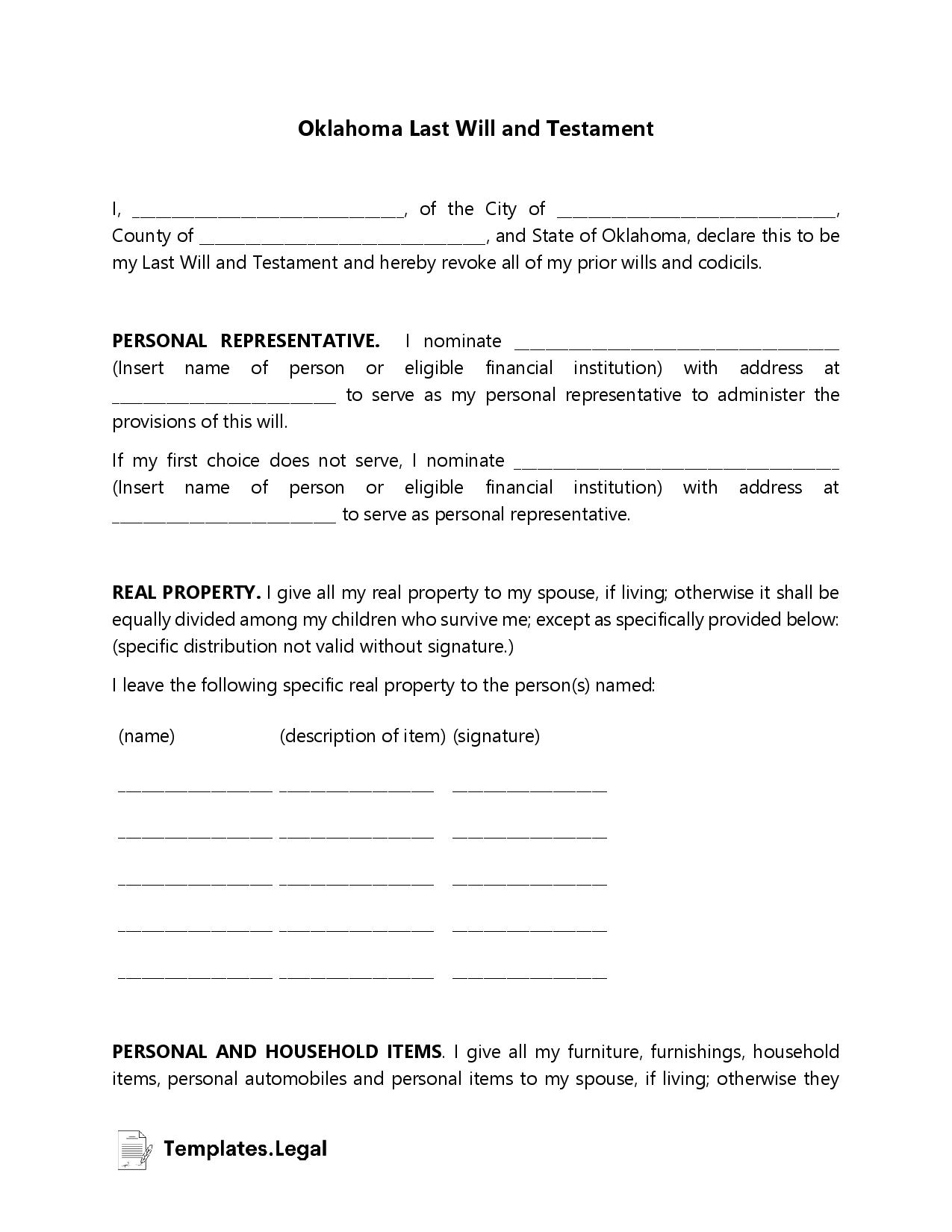Oklahoma Last Will and Testament
The probate courts in Oklahoma manage the last will and testament of an individual who has passed away. Probate courts handle the process to create clarity and ensure that all necessary steps are taken for unpaid debts, taxes and to protect the person’s property. The individual who makes a will is referred to as a “testator.”
Oklahoma Last Will and Testament Template
A will in Oklahoma determines what happens to an individual’s property after death. In Oklahoma, the last will and testament must be created by someone 18 years or older. They must be of sound mind. They must present the document in writing.
An Oklahoma last will and testament template may make a will. However, it is not required. If the will contains no typos, it should be accepted as valid.
If changes are needed to the last will and testament form, Oklahoma requires an amendment – called a codicil – to be included and signed in the same manner as the rest of the document. The testator must add the codicil (and have it witnessed) before their death.
Requirements for a Will to be Valid in Oklahoma
The last will and testament guarantees that you determine how your property is divided after death. For a will to be valid in Oklahoma, the testator must follow specific guidelines:
- Divide the desired property between inheritors
- Choose an executor
- Choose a guardian if children are present and underage
- Choose a manager for your children’s property
- Sign the will in front of at least two witnesses
These requirements are essential for a valid will. The two witnesses must also sign the will.
Cost to Create a Will in Oklahoma
While a free last will and testament in Oklahoma might be unavailable, a simple Oklahoma will template allows the process to move forward at a reasonable price. Some attorneys charge hundreds or thousands of dollars, depending on the complexity of the content.
Individuals who wish to create a free will in Oklahoma can write their documents. One can typically find simple resources to guide them in the process. If all state requirements are followed, the court must accept the will as legal and valid.

